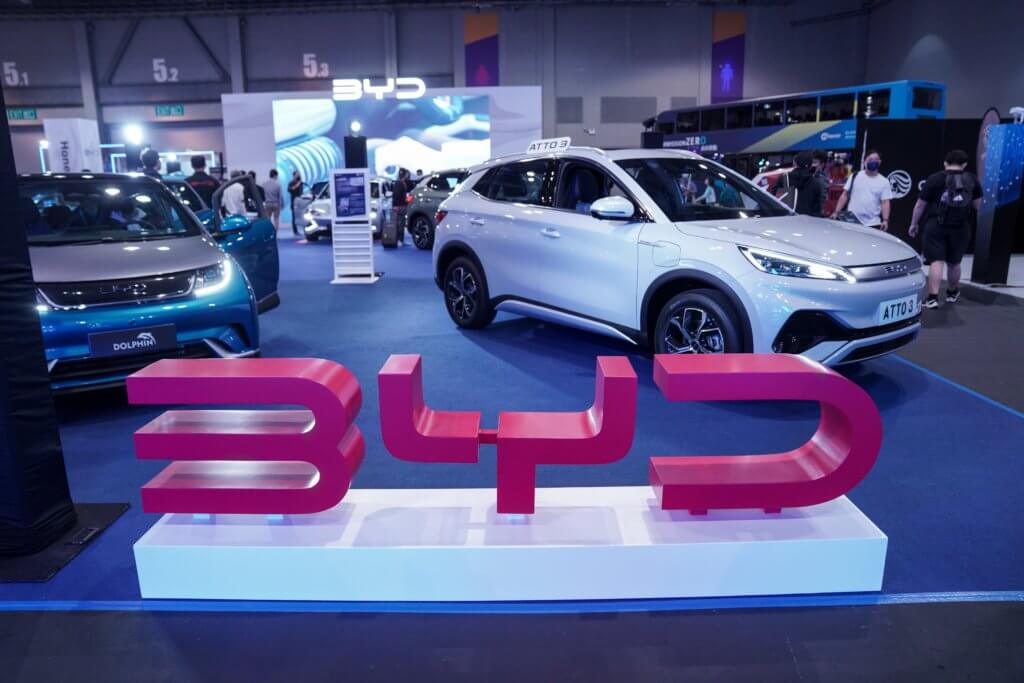
BYD has recently been making headlines with global expansion plans and aggressive activities in the electrified vehicle space, including successful new vehicles, such as the Han, Qin Plus and Dolphin Cars, and the Yuan Plus and Song SUVs. The brand debuted in Thailand and began taking orders for the Atto 3 SUV in November 2022. BYD reportedly received 10,000 orders for the model, reaching its shipment quota for the Thai market and has stopped taking any more orders until after the first batch is delivered early next year. The orders include the 2,714 bookings BYD received during the Bangkok Motor Expo – putting it in third place behind only Toyota and Honda. In order to qualify for the government’s BEV incentives, BYD is investing US$500 million in a Thai plant which will be up and running in 2024.

Discover B2B Marketing That Performs
Combine business intelligence and editorial excellence to reach engaged professionals across 36 leading media platforms.
In the Asia-Pacific region, BYD surpassed Nissan and Hyundai to become Asia’s fourth-ranked brand in October 2022, as its regional sales (including China) exceeded 1.4 million units in the first ten months of the year. Brand sales are on pace to hit 1.8 million units in full-year 2022, more than doubling its 2021 volume.
Tesla is making equally loud noises with its market entry in Thailand. The starting price of the Model 3 is THB 1.76 million (US$50,000) and THB 1.99 million (US$57,000) for the Model Y. Tesla reportedly received 5,000 orders within five days after the online booking began on 7 December. This level of pricing puts Tesla, which is a Premium brand, in the space of mass-market Japanese automakers in not just Thailand but across many markets in this part of the world. The starting price of Toyota’s new BEV – the bZ4X SUV – is only 3% to 6% lower than the Tesla Model Y in Australia, Thailand and Japan, and is in fact 12% higher in South Korea.
The Tesla Model Y has become Asia-Pacific’s second best-selling Light Vehicle year-to-date October 2022, less than two years since the model first debuted in China in 2021. China, however, accounts for most of the sales.
Tesla has worked out an effective way to remove a large chunk of vehicle distribution and service costs. Tesla sells vehicles online with on-site after-sales services that require no investments in, or ongoing costs of, dealerships and service centres. Tesla’s large-scale and cost-effective Shanghai plant also plays a role in driving down production costs. The plant’s current 800,000-unit capacity will increase to 1 million in 2023.
With BEV adoption rapidly accelerating across the rest of Asia, the pressure is intensifying for Japanese carmakers, which dominate a large part of the region apart from China and South Korea but have fallen behind on the BEV front. There is also serious competition from Chinese brands such as MG, Great Wall, and more recently BYD in the BEV segment in the rest of Asia. Chinese carmakers may have a long way to go to catch up with Japanese brands in the Internal Combustion Engine (ICE) market in the rest of Asia, but they have been developing BEVs for longer and at lower prices, making them extremely competitive in this space. With Tesla closing in from the top end and Chinese brands encroaching from the other end, there is a real threat that Japanese brands could find themselves squeezed in the middle of the BEV race.
GlobalData analyst May Arthapan
This article was first published on GlobalData’s dedicated research platform, the Automotive Intelligence Center






